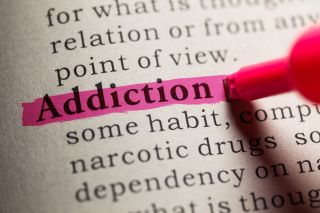
Addiction
Addiction or Dependency? Does it Matter?
Addiction and dependency have much in common, but there are differences
Posted March 25, 2015

Many of my patients often ask me, “What’s the difference between being addicted to prescription pain medications versus being dependent?” To help shed light on this important topic, I’d like to examine each classification.
Dependency on a medication is defined as a biological process that occurs when certain classes of medicines are taken for a period of time and the body begins to regulate itself in order to account for the medications. This can also lead to tolerance, in which the individual needs more of the medication for the desired effects.
Dependency also causes withdrawal or discontinuation effects when the medication is not tapered properly. The body and brain will react negatively because they are still under the assumption that the medications are coming and the systems that have been regulated have not been “deregulated” back to their baseline. This process is known as withdrawal.
In some cases, with certain classes of medication, the brain will develop symptoms of illness to obtain the missing medication. For example, when opiates taken for chronic pain are discontinued, part of the withdrawal process may be increased pain, a condition known as hyperalgesia.
Addiction includes the above, but also involves negative behaviors that are contrary to what a person would do if they were not on the medications. Someone who is addicted may be untruthful to get their medication, supplement using illicit substances, or steal someone else’s prescription. Dependent individuals would not exhibit such behavioral issues.
One important fact is that addiction is a spectrum with varying degrees. Picture a line in the sand; on one side is dependency, the other addiction. Some people just put their toe across the line and use a friend’s prescription periodically, while others have not seen that line in years and supplement their pain management regimen with IV heroin.
The treatment for those addicted as well as dependent on opiates is the same. The difference lies with aftercare recommendations and the need for 12-step follow-up. Most addicts benefit from a 12-step program, but it’s not common for a dependent person to adopt such a program into their lives.
I find it essential that individuals decide if they are addicts or dependent on their own. Group therapy can be powerful in citing examples, but this is a highly personal issue and drawing one’s own conclusion can lead to a great deal of empowerment. Some believe it is an exercise in semantics while others believe it is important to self-identify with one or the other.
Not everyone who uses prescription opiates is an addict and not every addict is dependent. This is a soul-searching question that requires examining one’s behavior and asking, “Have I been living in accordance with my morals and values?”

